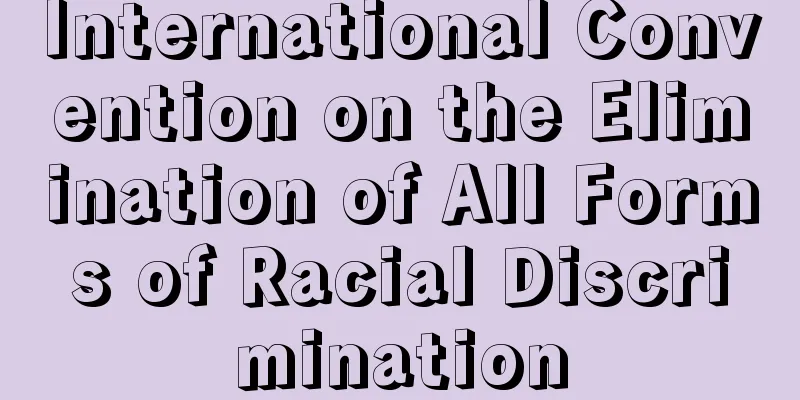International Convention on the Elimination of All Forms of Racial Discrimination

|
Its official name is the International Convention on the Elimination of All Forms of Racial Discrimination. It was adopted by the United Nations General Assembly on December 21, 1965 with 106 votes in favor, no votes against, and one abstention, and came into force on January 4, 1969. As of August 2019, there are 181 signatory countries. Japan took the necessary steps to join in December 1995, and the convention came into force on January 14, 1996. In this Convention, "racial discrimination" means any distinction, exclusion, restriction or preference based on race, color, descent (social status or status determined by birth), or national or ethnic origin which has the purpose or effect of nullifying or impairing the recognition, enjoyment or exercise, on an equal footing, of human rights and fundamental freedoms in the political, economic, social, cultural or other fields of public life. To ensure the implementation of this Convention, States Parties have taken various domestic measures and established an international organization called the Committee on the Elimination of Racial Discrimination. This Committee considers reports from States Parties, receives complaints, and can, under certain conditions, also receive and examine complaints from individuals and organizations. [Kentaro Serida] Source: Shogakukan Encyclopedia Nipponica About Encyclopedia Nipponica Information | Legend |
|
正式名称は「あらゆる形態の人種差別の撤廃に関する国際条約」International Convention on the Elimination of All Forms of Racial Discrimination。1965年12月21日に国際連合総会において賛成106、反対なし、棄権1で採択され、1969年1月4日に発効した。締約国は2019年8月時点で181か国。日本は、1995年12月に加入の手続をとり、翌1996年1月14日に発効した。 この条約にいう「人種差別」とは、人種・皮膚の色・世系(せいけい)(descent。出生によって決定される社会的地位や身分)・民族的または種族的出身(origin)に基づく区別や除外や制約や優先であって、政治・経済・社会・文化その他の公的な生活の分野で、人権と基本的自由の、平等の立場での承認や享有や行使を無効にしたり害する目的や効果をもつものを意味する。この条約の履行を確保するため、締約国は種々の国内措置をとっており、また人種差別撤廃委員会という国際機関を設置した。この委員会は、締約国の報告を審議し、異議申立てを受理するほか、一定の条件で、個人や団体の申立ても受理し、審理することができる。 [芹田健太郎] 出典 小学館 日本大百科全書(ニッポニカ)日本大百科全書(ニッポニカ)について 情報 | 凡例 |
Recommend
Sipunculoidea
...A general term for invertebrates belonging to ...
Econometrics - econometrics
It is a field of modern economics that lies betwe...
《Lecturer Kim and Professor T》
…His major works include “Dissolution of the Cons...
Primitive reflex
Also called neonatal reflexes. A reflex is an unco...
Partial differential equation
A relational equation between two or more indepen...
Asafiev
Russian composer and musicologist. Born in St. Pet...
Spectroscopic analysis
When a substance is irradiated with electromagnet...
Héroult - Paul Louis Toussaint Héroult
French metallurgist. Born in Harcourt, he entered...
Eleutherai
…First, there was a festival that had been celebr...
Helmand
The settlements range in altitude from 400 to 260...
Olpidium
...The most common is the Synchytrium chytrid, wh...
Feme Trial - Feme Saiban (English spelling) Femegericht
A unique type of trial that appeared in the Westph...
Kim Cheol-hun
...The Korean Socialist Party, which was organize...
Autumn silverleaf - Autumn silverleaf
A perennial plant of the family Araceae (APG clas...
Gorlic acid
…Oil obtained by removing the seed coat and squee...






![Aioi [city] - Aioi](/upload/images/67cacea9efc12.webp)


